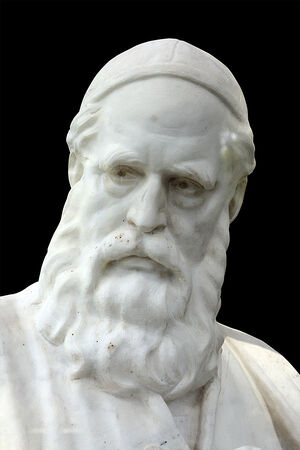Omar Khayyam (nonfiction): Difference between revisions
No edit summary |
|||
| Line 5: | Line 5: | ||
He wrote one of the most important treatises on algebra written before modern times, the Treatise on Demonstration of Problems of Algebra (1070), which includes a geometric method for solving cubic equations by intersecting a hyperbola with a circle. | He wrote one of the most important treatises on algebra written before modern times, the Treatise on Demonstration of Problems of Algebra (1070), which includes a geometric method for solving cubic equations by intersecting a hyperbola with a circle. | ||
As an astronomer, he designed the Jalali calendar, a solar calendar with a very precise 33-year intercalation cycle. | |||
== In the News == | == In the News == | ||
<gallery | <gallery> | ||
</gallery> | </gallery> | ||
Revision as of 04:54, 18 May 2019
Omar Khayyám ; born Ghiyāth ad-Dīn Abu'l-Fatḥ ʿUmar ibn Ibrāhīm al-Khayyām Nīshāpūrī (Persian: غیاثالدین ابوالفتح عمر ابراهیم خیام نیشابورﻯ, pronounced [xæjˈjɑːm]; 18 May 1048 – 4 December 1131), was a Persian polymath, scholar, mathematician, astronomer, philosopher, and poet, widely considered to be one of the most influential thinkers of the Middle Ages. He wrote numerous treatises on mechanics, geography, mineralogy and astronomy.
Born in Nishapur, in northeastern Persia, at a young age he moved to Samarkand and obtained his education there. Afterwards he moved to Bukhara and became established as one of the major mathematicians and astronomers of the Islamic Golden Age.
He wrote one of the most important treatises on algebra written before modern times, the Treatise on Demonstration of Problems of Algebra (1070), which includes a geometric method for solving cubic equations by intersecting a hyperbola with a circle.
As an astronomer, he designed the Jalali calendar, a solar calendar with a very precise 33-year intercalation cycle.
In the News
Fiction cross-reference
Nonfiction cross-reference
External links:
- Omar Khayyam @ Wikipedia
